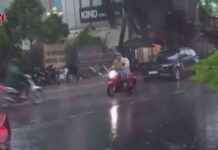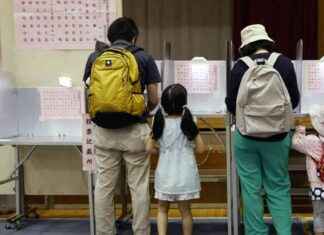Edwin Josué Andino, 23, was killed by a bullet fired at point-blank range in the face, Amada Ponce, director of the NGO for the defense of press freedom, told AFP.
Before shooting him, his assassins had gagged him with duct tape, a modus operandi when killing journalists in Mexico symbolizing the desire to “silence” the press, Ms Ponce added.
Police said in a statement that “individuals dressed in uniforms similar to those of the (military police)” brought the father and son out of their home in the Villafranca neighborhood, west of Tegucigalpa, and took them shot dead with firearms.
Edwin Josué Andino had not been threatened before his assassination, according to Raul Morazan, director of the LTV television channel, for which the journalist had worked for two years.
The Office of the United Nations High Commissioner for Human Rights in Honduras condemned the two murders on Twitter and urged the authorities to “establish concrete sanctions against those responsible”.
The institution offered “technical support to the authorities in the search for and implementation of sustainable structural measures to protect those who defend human rights and practice journalism”.
“This is the fifth journalist murdered since the beginning of the year in Honduras”, and the 98th in twenty years by combining journalists, media directors or press employees, lamented Ms. Ponce.
Honduras is considered one of the most dangerous countries in the world for journalists, according to press freedom organisations. More than 90% of murders of journalists go unpunished.
With a rate of some 39 homicides per 100,000 inhabitants, four times the world average, Honduras is also one of the most dangerous countries in the world, outside of conflict zones.








